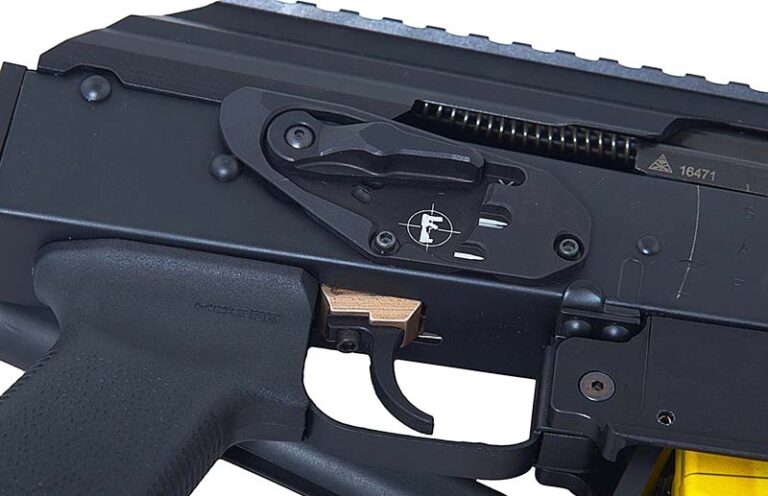
Looking for an easy and legal way to increase your weapon’s fire rate? A binary trigger may be what you want. Here are some of the best.
Compared to a standard trigger, a binary trigger will (literally) give you more bang for your buck. How? Binary triggers have an extra step in the trigger mechanism that drops the hammer not only when the trigger is pulled, but also when it’s released. This means that every time your booger hook actuates a binary bang switch, twice as many bullets are sent down range.
Some consider them gimmicks, some take them seriously. Regardless, many people like them. If you were to become interested…what would be a good one to buy? Should you even bother?
Let's go over what binary triggers are, why they're perfectly legal (for now!), what redeeming features they might have, and finally four binary triggers that are actually worth buying.
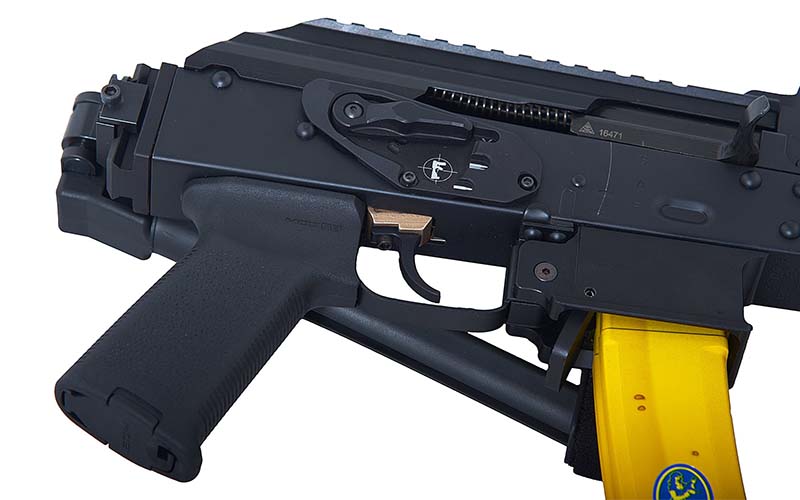
What's A Binary Trigger?
The first binary triggers were developed, released and popularized by Franklin Armory, and the company still dominates the market today.
How a normal trigger mechanism works is that the hammer is caught by the disconnector and the sear lever, holding it in place until the trigger is pulled. You pull the trigger, the hammer drops, and a pew happens. For the next shot, the trigger must be released to reset the sear so the cycle can repeat.
A binary trigger adds a second sear into the equation, catching the hammer again after the first shot and holding it before the trigger is released. As you release the trigger, the second sear lever disengages, the hammer falls, and the cycle repeats.
This is the general principle behind how all binary triggers operate, but of course there are some differences in form between triggers designed for different weapons. Some kinds only allow for firing in binary mode once installed, but others come with a selector and can be toggled between binary and standard modes.
Are Binary Triggers Legal?
According to federal law, binary triggers are completely legal and are not restricted NFA items. That said, do not construe any of the following as legal advice (I am not a lawyer). Do look into your local laws before trying to buy one. As we’ll get to later, binary triggers are prohibited in some states.
The definition of a machine gun, per the NFA and the BATFE, is:
Any weapon which shoots, is designed to shoot, or can be readily restored to shoot, automatically one shot without manual reloading, by a single function of the trigger.
Because binary triggers reset the hammer before the trigger is released, but do not drop the hammer until it is released, it distinguishes each function as a separate action. The key part is, because only one bullet is fired per function of the trigger, it does not meet the ATF’s definition of a machine gun.
As a result, the ATF currently considers most binary trigger designs as in compliance with federal regulation. Other triggers with different designs but similar results are not, however. For example, Rare Breed is currently embroiled in a legal battle with the ATF over its Forced Reset Trigger.
It bears mentioning that forced reset triggers are mechanically distinct from binary triggers, so it's not quite apples to apples. However, both devices increase a gun’s practical fire rate, and it goes to show that just like bump stocks, lightning links and similar devices, the ATF will come for them if it feels like it can get away with it.
Further, despite being federally legal, a number of states explicitly or implicitly prohibit binary triggers. Residents of CA, CT, DC, FL, HI, IA, MD, NJ, NY, RI, and WA may be prohibited from possessing or selling one, so take care to research your state’s laws carefully and thoroughly before buying one.
Are Binary Triggers Actually Worth Buying?
So, let's get it out of the way: is a binary trigger a mere range toy or is there any sort of practical advantage to having one?
On paper, a binary trigger lets you shoot fast double taps. If you can press the trigger very quickly, it might be able to give you a faster rate of fire than you would have with a standard trigger. Some may even argue that it gets you as close to full-auto as possible without having to get a tax stamp.
In the real world, it's mostly a gimmick for mag dumping into the berm, but there's nothing wrong with that if it makes you happy and you're honest about it.
Binary triggers aren't allowed in most shooting sports, they aren't allowed by some ranges and they won't help your splits nearly as much as good training, hard work and practice will.
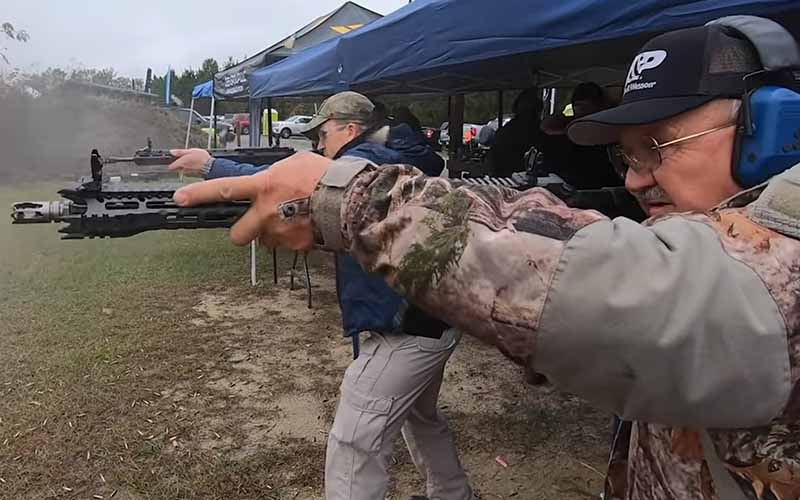
Jerry Miculek tried running a Fostech binary trigger against a standard one in a mag-dump race, and he was able to empty his magazine about two seconds faster in binary fire mode than with a standard trigger. An improvement, sure, but spread between 30 rounds, two seconds isn't much. Granted, most of us are not Jerry Miculek, but even if binary triggers provided a greater advantage, that is A. achievable by other means and B. rarely the difference between life and death.
It should also be noted these triggers are incredibly expensive. You aren't getting out the door for less than $300 in most instances.
Is there a situation where a binary trigger will be the difference between saving your life and getting killed in the streets? Not really, no. If you want to shoot a rifle more effectively in a defensive situation, optics are a better use of those dollars. Training from a good instructor is better still.
While certainly fun, these “upgrades” don't bring much to the party in terms of real-world benefits. Like bump stocks, binary triggers are range toys and should be treated as such. Again, there’s nothing wrong with that, just don’t mistake them for practical upgrades or as a substitute for training.
Before You Buy A Binary Trigger
If you’re considering buying a binary trigger, it’s important that you know that you will likely have to modify your rifle slightly. For AR-pattern rifles, you will need a full auto bolt carrier group (the good news is that most of them come with one anyway) and an H2 buffer. For AK-pattern rifles, you may need to upgrade your recoil spring.
The Top 4 Binary Triggers
Franklin Armory BFSIII 22-C1
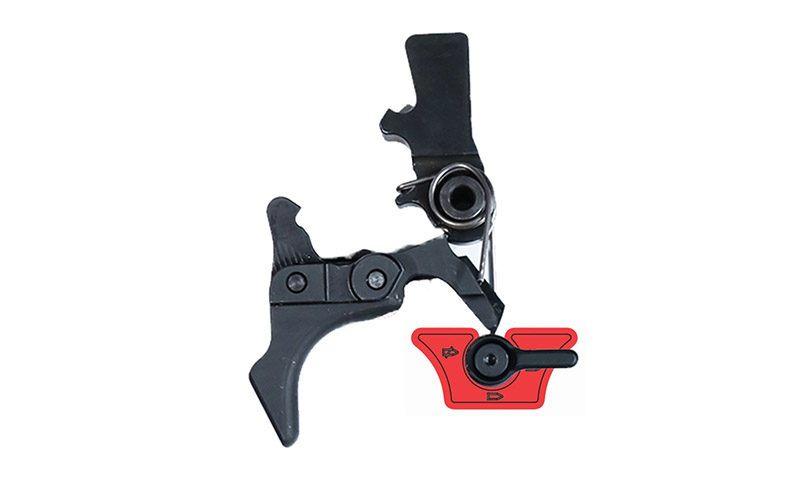
If you want a binary trigger for cheap fun at the range, this is the one to get. The BFSIII 22-C1 is made for the Ruger 10-22, and it drops into most (though not necessarily all) Ruger 10-22 rifles.
The BFSIII 22-C1 is a three-position trigger, with the first position being safe, the second being semi-auto and the third position being for binary operation. If you're going to use it as a range toy, you might as well put it in what is probably the ultimate fun gun. The BFSIII is also available for the Ruger PC.
MSRP is $299.99, but street prices can be as low as $250 in some cases.
Fostech Echo AK Trigger
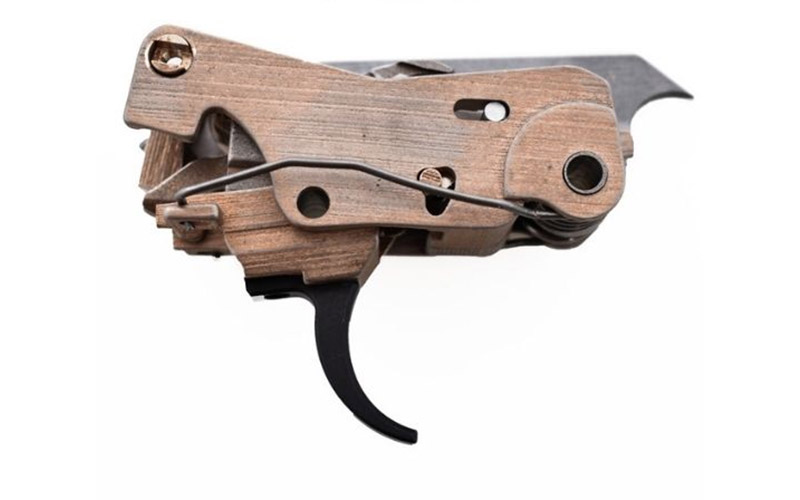
The Fostech Echo is a competing design against Franklin Armory’s AK binary trigger, achieving the same effect but with a slightly more complicated design. However, the company has also established itself as a manufacturer of high-quality parts, so you'll get what you pay for.
The Echo AK trigger drops into most Kalashnikov rifles from most manufacturers, and although it was designed for use with stamped receivers it can work with milled receiver AKs with some fitting and patient installation.
MSRP is $547.99, but street prices are often just below $500.
Franklin Armory BFSIII AR-S1
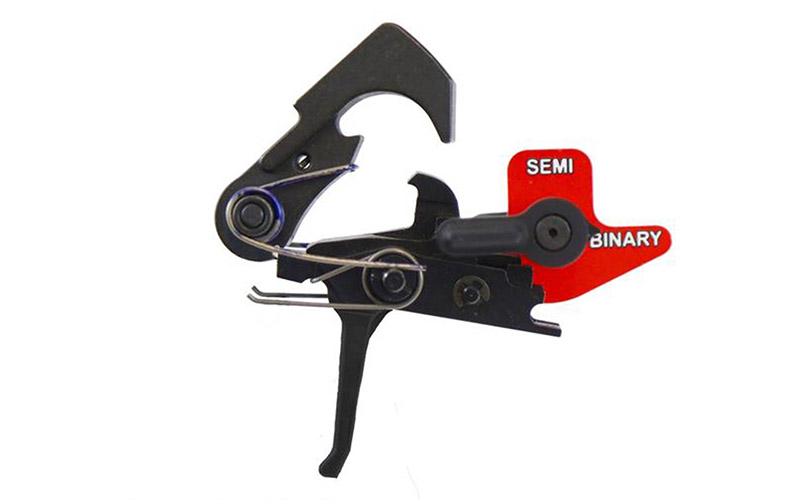
The Franklin Armory BFSIII AR-S1 is a modern, flat-face AR binary trigger for those who prefer a flat blade instead of the traditional curved trigger blade. Believe it or not, you can get Glock knuckle from shooting ARs too (dragging on the trigger guard) and flat triggers help prevent this.
The BFSIII AR-S1 comes with a three-position selector and drops into nearly any AR variant of any caliber without issue. The third position is binary mode, with the first two positions being the expected safe and semi.
MSRP is $429.99, but it can be found for less than $400.
Fostech Echo Sport Trigger
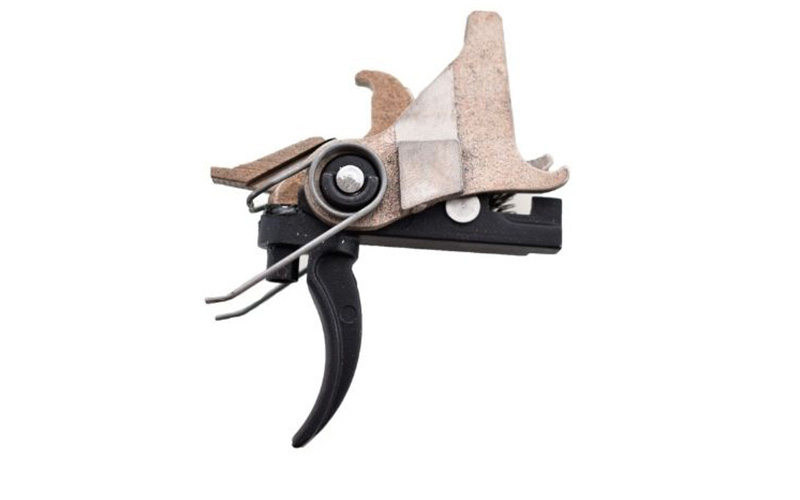
The Fostech Echo Sport is an AR binary trigger that's a little more economical given its slightly more affordable MSRP. It's still more expensive than some Geissele triggers, but then again, most binary triggers are.
The Fostech Echo Sport has a simplified mechanism compared to the standard Echo, with a dual disconnector/sear assembly and included three-position safety selector assembly as well.
MSRP is $329.99, but street prices are usually under $300.
More On Aftermarket AR Parts:
- Top AR-15 Accessories And Upgrades
- Grip It And Rip It: AR Charging Handle Buyer's Guide
- Four Quick And Dirty AR Upgrades
- Choosing The Best AR Accessories
- Prioritizing Spending On Your AR-15 Build
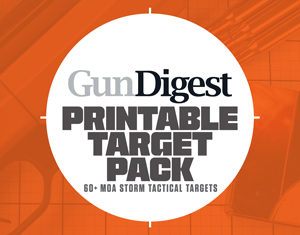
Next Step: Get your FREE Printable Target Pack
Enhance your shooting precision with our 62 MOA Targets, perfect for rifles and handguns. Crafted in collaboration with Storm Tactical for accuracy and versatility.
Subscribe to the Gun Digest email newsletter and get your downloadable target pack sent straight to your inbox. Stay updated with the latest firearms info in the industry.

![Best Concealed Carry Guns In 2025 [Field Tested] Wilson Combat EDC X9S 1](https://gundigest.com/wp-content/uploads/Wilson-Combat-EDC-X9S-1-324x160.jpg)


![Best 9mm Carbine: Affordable PCCs [Tested] Ruger Carbine Shooting](https://gundigest.com/wp-content/uploads/Ruger-Carbine-Shooting-100x70.jpg)
![Best AR-15: Top Options Available Today [Field Tested] Harrington and Richardson PSA XM177E2 feature](https://gundigest.com/wp-content/uploads/Harrington-and-Richardson-PSA-XM177E2-feature-100x70.jpg)
